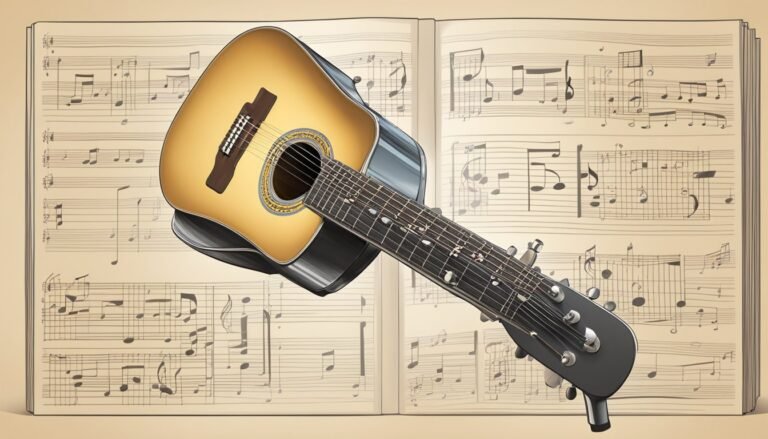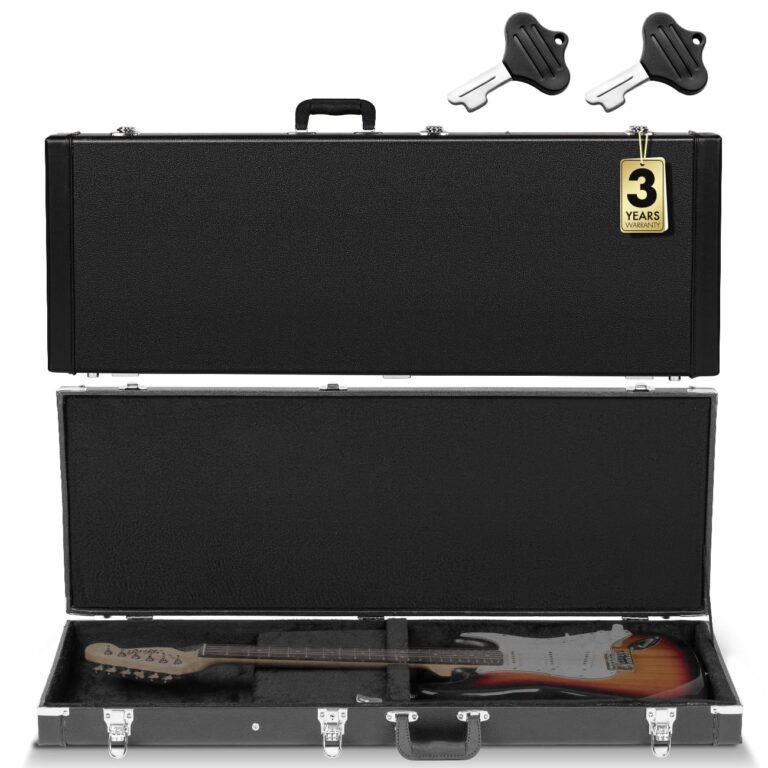
What Is Acoustic Guitar: A Simple Guide to Its Features and Sound
The acoustic guitar is a stringed instrument that amplifies sound through its hollow body, producing warm tones and resonating deeply with music lovers globally.

The acoustic guitar is a stringed instrument that amplifies sound through its hollow body, producing warm tones and resonating deeply with music lovers globally.

An acoustic guitar produces sound through string vibration and resonance, featuring various body styles like dreadnought and parlor, influencing tone and playability.

Drop D tuning lowers the low E string to D, enabling unique chords and powerful riffs popular in rock, metal, and folk music, enhancing guitarists’ creativity.

Guitar strings are essential for sound production, with standard tuning as E, A, D, G, B, and E, impacting tone and playability significantly.

The Seminole Hard Rock Hotel in Hollywood, Florida, is the only notable guitar-shaped hotel, offering luxury accommodations, live entertainment, and unique architectural design.

Guitar valuation depends on brand, model, age, condition, rarity, and authenticity. Online tools and local experts can assist in determining accurate worth.

Playing guitar involves learning essential skills like tuning, chord progressions, and strumming techniques, which enhance confidence and enjoyment in creating music through practice.

Learning to read guitar sheet music enhances a guitarist's skills by providing essential knowledge of standard notation, tablature, rhythms, time signatures, and music theory applications.

Equalization (EQ) pedals allow musicians to boost or cut specific frequencies, enhancing their sound for live performances or studio recordings. Key features include frequency bands, build quality, and power options.

A hard guitar case protects instruments from damage, using durable materials like wood or plastic. Key features include size, padding, latches, and portability for safe transport.